Description
Name in North American Boletes: Tylopilus eximius
Genus: Sutorius
- Genus 2: Tylopilus
Species: eximius
Common Name: “Lilac Brown Bolete”
Tells: Chocolate- to purple-brown pores stain dark brown. Purple- to gray-brown cap. White cap flesh slowly stains purple-, red-, or gray-brown.
Other Information: Stem’s light base color covered by cap-toned scabers. Cap can be slightly viscid. Particularly likes hemlock, but will grow under conifers or even in oak forests that have a hemlock the mycelium originally began with. A northern species that also crawls down the Appalachians, and can be found in higher elevations as far south as Georgia.
Science Notes: DNA testing moved this mushroom into the newly erected genus “Sutorius.”
Edibility: Avoid. Used to be considered edible and many people probably enjoyed it, but recent and reliable reports prove that several others have gotten severe GI distress.
CHEMICAL TESTS:
- NH4OH (Ammonia): No data.
- KOH: Cap skin turns olive.
- FeSO4 (Iron Salts): Cap flesh turns olive.
Links:
 |
592 |  |
296 |  |
262 |  |
364 |

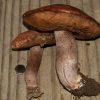
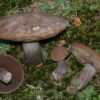
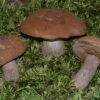
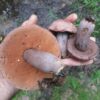
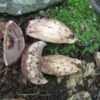

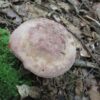
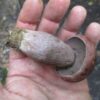
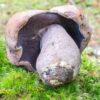
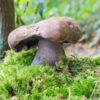

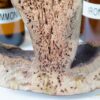
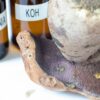
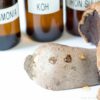
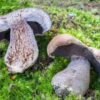
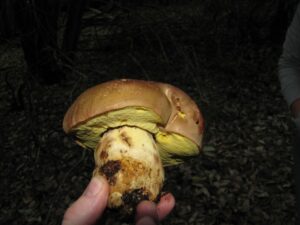

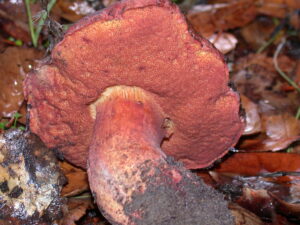
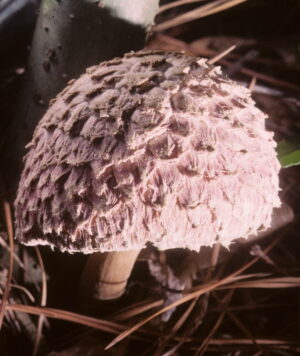
Got something to discuss?